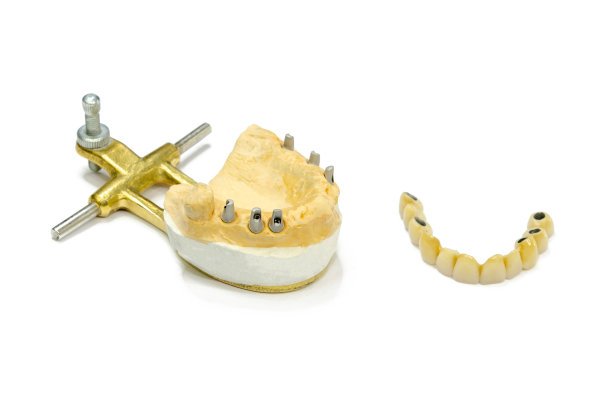Summary: Tooth extraction is often seen as a last resort in dental care, but it plays a crucial role in maintaining overall dental health and preventing future issues. This article explores the significance of tooth extraction through four primary aspects: preventing infection and decay, alleviating overcrowding, facilitating orthodontic treatments, and reducing the risk of gum disease. Each point will demonstrate how timely extraction can save patients from more severe dental complications down the road, ultimately leading to a healthier mouth and improved well-being.
1. Preventing Infection and Tooth Decay

Tooth extraction can be essential in preventing the spread of infection within the mouth. When a tooth is infected or severely decayed, it can lead to the development of abscesses, which pose significant threats to surrounding teeth and overall health. An infected tooth can introduce harmful bacteria into the bloodstream, possibly leading to more severe systemic issues.
By removing the source of infection, dental professionals can halt the spread of decay and prevent other teeth from becoming compromised. This proactive approach safeguards patients’ oral health, as unattended decay can result in severe pain and necessitate more complex dental procedures, such as root canals or crowns.
Furthermore, tooth extraction minimizes the risk of further complications related to chronic infections, such as jawbone deterioration. Early interventions can lead to longer-lasting oral health, contributing to overall well-being.
2. Alleviating Overcrowding in the Mouth
Another critical reason for tooth extraction is alleviating overcrowding. Many individuals experience dental overcrowding due to genetics, early loss of baby teeth, or other factors. Overcrowding can lead to misalignment of teeth, impacting both aesthetics and functionality.
Removing one or more teeth can create the necessary space in the mouth, promoting better alignment. This is particularly important for children and teenagers whose jaws are still developing. Creating adequate space allows for the natural movement of teeth and often minimizes the need for extensive orthodontic procedures later.
In addition to improving alignment, addressing overcrowding can also facilitate better oral hygiene. An overcrowded mouth can make it challenging to clean teeth thoroughly, leading to plaque buildup, cavities, and gum disease. By extracting problematic teeth, dental health becomes easier to maintain.
3. Facilitating Orthodontic Treatments
Tooth extraction is often a prerequisite for effective orthodontic treatment. When planning braces or other orthodontic interventions, dentists and orthodontists may recommend the extraction of certain teeth to achieve the desired alignment and bite.
Orthodontic procedures are predicated on the principle of space management. Removing teeth that are severely misaligned or that contribute to overcrowding can provide the necessary space for remaining teeth to shift into their proper positions. This can significantly shorten the duration of orthodontic treatment and improve the final result.
Moreover, enhanced oral health plays a pivotal role in the success of orthodontic treatments. By ensuring that no additional decay or gum issues arise due to overcrowding, patients can experience a smoother treatment journey, leading to a healthier, more attractive smile.
4. Reducing the Risk of Gum Disease
Gum disease is a widespread condition that can have serious consequences if left unaddressed. Extracting teeth that are compromised or heavily decayed serves as an important measure in preventing the onset of gum disease.
When teeth are infected or decayed, the surrounding gum tissue often becomes inflamed and susceptible to periodontal disease. By removing affected teeth, dentists can reduce the bacterial load in the mouth, promoting healthier gums and reducing the risk of inflammation and infection.
Additionally, a healthy mouth environment fosters better healing and oral hygiene practices. Patients are more likely to maintain rigorous oral care routines when their mouths are not overcrowded or compromised by problematic teeth. This proactive step ensures a healthier future and minimizes long-term dental expenses related to severe gum diseases.
Summary:
In summary, tooth extraction is a critical aspect of maintaining dental health and preventing future complications. By preventing infections, alleviating overcrowding, assisting orthodontic treatments, and reducing the risk of gum disease, timely extractions can lead to significant improvements in a patients oral and overall health.
Dental professionals should encourage patients to understand the importance of tooth extraction as a preventive measure rather than a last resort. Prioritizing oral health today leads to a healthier tomorrow.
This article is compiled by Vickong Dental and the content is for reference only.
Vickong Dental
Vickong Dental is a large medical group established in Hong Kong in 2008 by professors from well-known medical universities in Guangdong and Hong Kong, as well as medical doctors from key national '985' universities (including Master's supervisors and senior professors). The chain of branches brings together expert dentists with PhDs and Master's degrees from Hong Kong and Mainland China, committed to providing high-quality dental treatment.
"Vickong Dental Practices the University Motto of 'Healing and Serving Society,' with a Stable Operation for Sixteen Years. It Has Been honored with Hong Kong Enterprise Leaders's Choice,' and is a Global Trusted Implant Center for the Nobel Implant System. Recommended by Hong Kong Metro Broadcast and Guangdong Television, it Serves Customers from Over Thirty Countries and Regions, Gaining the Trust and Favor of Citizens from the Guangdong-Hong Kong-Macau Greater Bay Area and Surrounding Cities.

Thousands of customers' unanimous praise
The most recognized and highly recommended dental service by customers in the Guangdong-Hong Kong-Macau Greater Bay Area
We Ensure You Receive Detailed Care and Attention Here
Hong Kong standards, Shenzhen prices, Your Trusted English-speaking dentists

Vickong Dental Medical-Grade Instrument Disinfection Process
Vickong Dental Medical-Grade Instrument Disinfection Process

Vickong Dental Chain: A Warm and Comfortable Environment for Treatment






Appointment Hours

Q&A
Why choose Vickong Dental?
Vickong Dental practices the university motto 「Medicine to Benefit Society」, with each branch bringing together highly qualified dentists with doctoral and master’s degrees from Hong Kong and the Mainland, and has maintained seventeen years of steady operation。Recipient of 「2024 Hong Kong Enterprise Leaders Brand」, 「2025 Hong Kong Enterprise Leaders Brand」, a Nobel Biocare Global Trusted Implant Center, and a brand recommended by Metro Radio Hong Kong and Guangdong TV。
To date, we have served customers from more than thirty countries and regions,earning exceptionally high word-of-mouth recognition and trusted recommendations from residents across the Guangdong-Hong Kong-Macao Greater Bay Area and surrounding cities
We have eight major branches in Zhuhai、Shenzhen,and a consultation and service assurance center in Hong Kong,so you can book a free consultation at any time for any questions,which is very reassuring.
If I do not accept the quotation after the CT scan, will I be charged??
No! As long as the actual treatment has not started, you will not be charged any fees.
Will there be any additional charges during the treatment process?
No, there won’t be any additional charges. Before treatment begins, we will clearly explain the treatment plan and its corresponding fees. Only after the patient agrees and signs the consent form will we proceed with the dental service.
Can I pay in Hong Kong dollars?
Yes. Vickong Dental accepts payment in Hong Kong dollars. The amount will be converted based on the exchange rate of the day, and the applicable rate will be clearly communicated to you in advance.
Can I reschedule my appointment at any time?
Yes. Please contact us via **WeChat** or **WhatsApp** as early as possible, providing your original appointment time and details, along with your preferred new date and time slot for rescheduling.













